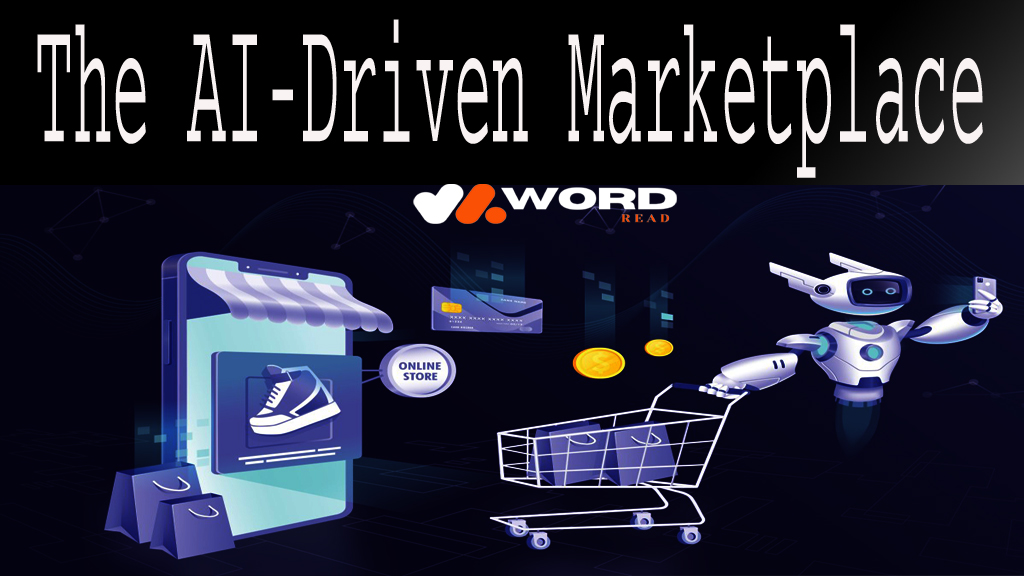The fast development of artificial intelligence (AI) has changed multiple fields of commerce. It
enhances consumer experiences and changes seller strategies to improve processes. The ecommerce companies like Amazon, eBay, and Walmart are embracing AI-driven technologies.
Sellers on these platforms are using AI to improve efficiency, accurately target customers and
obtain a competitive advantage in a busy industry.
AI has become an effective instrument in e-commerce, assisting with a number of online sellingrelated tasks. Artificial intelligence (AI) algorithms are used by online retailers such as Amazon,
eBay and Walmart.
Amazon:
Amazon is the largest e-commerce company in the world that provides a huge selection of goods
from both its own inventory and third-party vendors. Amazon gives retailers the tools they need
to access a global audience and improve their sales strategy. It is well-known for its advanced
logistics, quick shipping options through Prime and modern facilities and AI algorithms.

Walmart:
Walmart is a significant player in both online and physical retailing. It provides an omnichannel
shopping experience that combines online orders with its huge store network. Walmart offers
businesses the chance to reach a big client base through its carefully chosen third-party
marketplace and efficient fulfilment services.
eBay:
eBay is a global online marketplace that facilitates the buying and selling of a broad range of
products by both individuals and companies. eBay is well-known for its fixed-price and auctionbased sales. It provides sellers with a diverse platform that includes tools for safe transactions,
customized advertising and reaching a large global audience.
I. Dynamic Pricing:
Dynamic pricing is an innovative approach to online shopping that updates prices quickly in
response to external influences, competition prices, and market demand. Amazon, eBay,
Walmart, and other online marketplaces use complex algorithms to support sellers in maintaining
their competitiveness. Amazon’s “Buy Box” feature is affected by dynamic pricing. Sellers who
utilize artificial intelligence (AI) techniques to maintain competitive prices are more likely to
win this desired position, which increases sales. eBay uses artificial intelligence (AI) to optimize
prices for sellers by analyzing market patterns and estimating the ideal times to list things.
Walmart uses algorithms to track inventory levels and competitor’s prices, providing that prices
vary both online and in-store.

II. Inventory Management:
Sellers must manage their inventory well to avoid overstock or stockout situations which can
both negatively impact revenue. Artificial intelligence (AI)-driven inventory management
systems use sales patterns, seasonal variations and outside market circumstances. Sellers may
better manage their supply chain and make sure the appropriate products are available at the right
time by utilizing AI.
Amazon’s AI tools offer predictive analytics for inventory forecasting. It allows sellers to
maintain optimal stock levels. eBay’s AI provides insights into supply chain optimization. It
allows sellers to adjust inventory based on predicted sales patterns. Walmart’s AI-powered
restock system predicts demand at local and global levels. It reduces waste and improves
profitability.
III. Recommendations and Targeted Audience:
Marketplaces can provide highly customized product recommendations and targeted advertising
because AI is so good at analyzing large volumes of data. Sellers benefit from increased
conversion rates, client loyalty, and targeted product promotion, all of which provide them an
edge in the market.
Amazon’s Recommendation Engine uses AI to suggest products based on customer browsing
history and increase sales. eBay’s AI-powered targeting helps sellers create targeted campaigns
and increase engagement. Walmart’s AI-driven advertising platform optimizes ad spend and
ensures the best ROI for sellers. These AI tools help sellers reach relevant customers and
maximize ROI.

IV. Customer Service:
AI is also improving the consumer experience by giving vendors the ability to handle reviews,
automate customer support and quickly reply to comments. Positive client experiences also
improve a seller’s reputation. Artificial intelligence (AI) makes sure that customers get correct
and quick answers to their questions.
AI uses Amazon to handle reviews, automate responses, improve customer support and measure
customer happiness. eBay’s AI-enhanced feedback System assists sellers in handling bad
feedback, maintaining a positive online image and offering immediate and effective support.
Walmart’s AI-driven chatbots assist customers with product queries, returns and order tracking.
Future of AI Role in E-commerce:
It is anticipated that AI’s position in e-commerce will increase as technology develops and sellers
become more skilled. The future of AI developments involves more advanced predictive
analytics and advanced personalization strategies. It also enhances the automation of the selling
process.

Furthermore, Artificial intelligence (AI) is also able to contribute significantly to sustainable ecommerce. It improves supply chains to save waste, boost energy efficiency and decrease the
environmental impact of manufacturing and shipping.



4 Comments
I seriously love your site.. Pleasant colors & theme.
Did you build this web site yourself? Please reply back as I’m planning to create my
own site and would like to find out where you got this from or exactly what the theme is called.
Thank you!
you can contact me on markwell7827@gmail.com for creation of your site like this. Thanks
Hi, just wanted to mention, I liked this article. It was helpful.
Keep on posting!
Hi there, i read your blog from time to time and i own a similar one and i was just curious if
you get a lot of spam responses? If so how do you reduce it, any
plugin or anything you can recommend? I get so much lately it’s driving me crazy so any
help is very much appreciated.